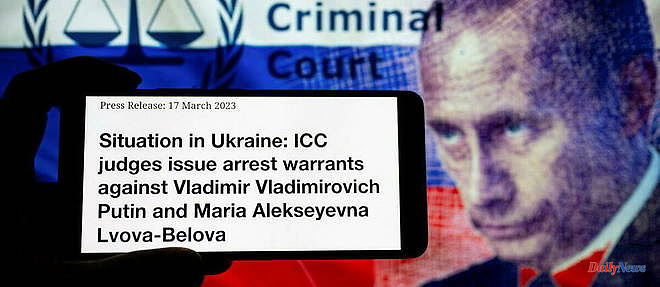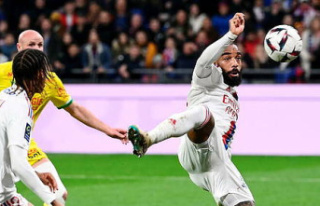After the issuance, Friday, March 17, by the International Criminal Court (ICC) of an arrest warrant against Vladimir Putin for war crimes in Ukraine, could the Russian president really appear one day on the dock in La Hague? Here are some answers.
ICC member states are required to execute arrest warrants for Vladimir Putin and Maria Lvova-Belova if they visit their territory. "It's true," ICC prosecutor Karim Khan told Agence France-Presse when asked if Vladimir Putin would face arrest if he travels to any of the 123 countries. parties to the Rome Statute, the court's founding text. Although the latter does not have its own police force.
According to ICC President Piotr Hofmanski, the execution of warrants "depends on international cooperation". Matthew Waxman, a professor at Columbia Law School, said it was "a very big slap from the ICC, but the odds are slim that Putin will ever be arrested." Sudanese leader Omar al Bashir has traveled to several African states despite an ICC arrest warrant.
First of all, neither Russia nor Ukraine are members of the ICC. The court is entitled to prosecute Vladimir Putin only because Kyiv has accepted its jurisdiction in the current situation. But Russia rejected the arrest warrants and said it would not cooperate. “Russia, like a number of states, does not recognize the jurisdiction of this court. Therefore, from the point of view of law, the decisions of this court are null and void,” said Russian Presidential Spokesman Dmitry Peskov.
Moscow has signed the Rome Statute but has not ratified it. Then she withdrew her signature on the orders of Vladimir Putin in 2016, after the opening of an ICC investigation into the 2008 war in Georgia. Vladimir Putin is unlikely to be in the dock "unless there is regime change in Russia," said Cecily Rose, assistant professor of public international law at Leiden University.
Several political and military leaders have been tried for war crimes, recalls Karim Khan. "There are so many examples of people who thought they were above the law" and who "ended up in court," he observes. "Take Milosevic or Charles Taylor or Karadzic or Mladic," he points out.
The ICC convicted former Liberian warlord-turned-president Charles Taylor of war crimes and crimes against humanity in 2012. Former Serbian President Slobodan Milosevic died in his cell in The Hague in 2006 while on trial for genocide in the tribunal for the former Yugoslavia. Former Bosnian Serb leader Radovan Karadzic was eventually captured in 2008 and convicted of genocide by the same court, and his military leader Ratko Mladic was arrested in 2011 and sentenced to life imprisonment.
The ICC cannot try suspects in absentia, but Karim Khan observes that the court has other ways to move certain cases forward. He asked judges to hold a hearing to confirm the charges against Joseph Kony - leader of the Lord's Resistance Army, which launched a bloody rebellion in Uganda - although Joseph Kony remains at large. "This process may be available for any other case, including the current one" in Ukraine, raises the ICC prosecutor.












